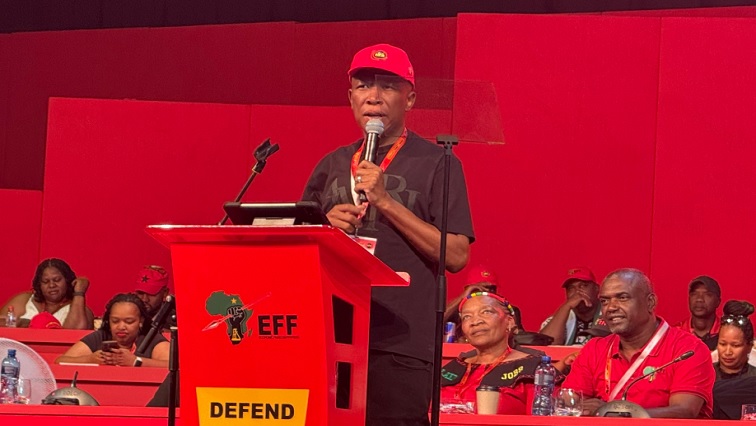Newly elected Economic Freedom Fighters (EFF) leader Julius Malema has hit out at the media for casting aspersions on the outcomes of the party’s elective conference taking place at Nasrec in Johannesburg.
The EFF has been criticised on the top six officials results, with some believing that they were handpicked by Malema.
However, the EFF has disputed the party’s third people’s assembly had a predetermined outcome.
Giving his acceptance and closing address, Malema said the party’s election outcome was a demonstration of the EFF’s unity.
“There’s been numerous attempts to cast doubt and shadow over the credibility and authenticity of our assembly because the aim is to caricature it as an organisation of chaos. And you have proved them all wrong. Those in the public domain have more than a decade characterised the EFF as an organisation of an individual which relies on an individual and over the past three days, you have proven that this movement belongs to the people.”
VIDEO | The nomination of the top six positions
The Central Command Team
Malema has given the direction of march to the newly elected additional leaders of his party which together with the top six officials constitute the Central Command Team (CCT).
The party adopted a resolution which led to the expansion of the CCT from 46 to 66 leaders. The CCT is the highest decision-making body of the country’s fourth largest party between conferences.
Malema says the new EFF leaders must be exemplary and diligent.
“We do not want commissars that are detached from the daily realities of our people and are obsessed with talking amongst themselves but never going to our people, fighters these commissars sitting behind me must never get into the practice of only being visible when there is a national programme and as soon as the leadership leaves, they follow. From now on a commissar must be a permanent ground force defined by humility and willing to sacrifice everything in service of our struggle.”
Regional structures
The party has resolved to take its leadership closer to the people they represent. Malema says that the organisation’s regional structures will be done away with in favour of establishing sub-regional structures.
The hope is that the leaders of the new structures will be more accessible to the local communities amongst whom they will live. He says the transition will take place over time.

